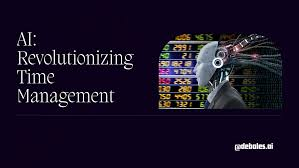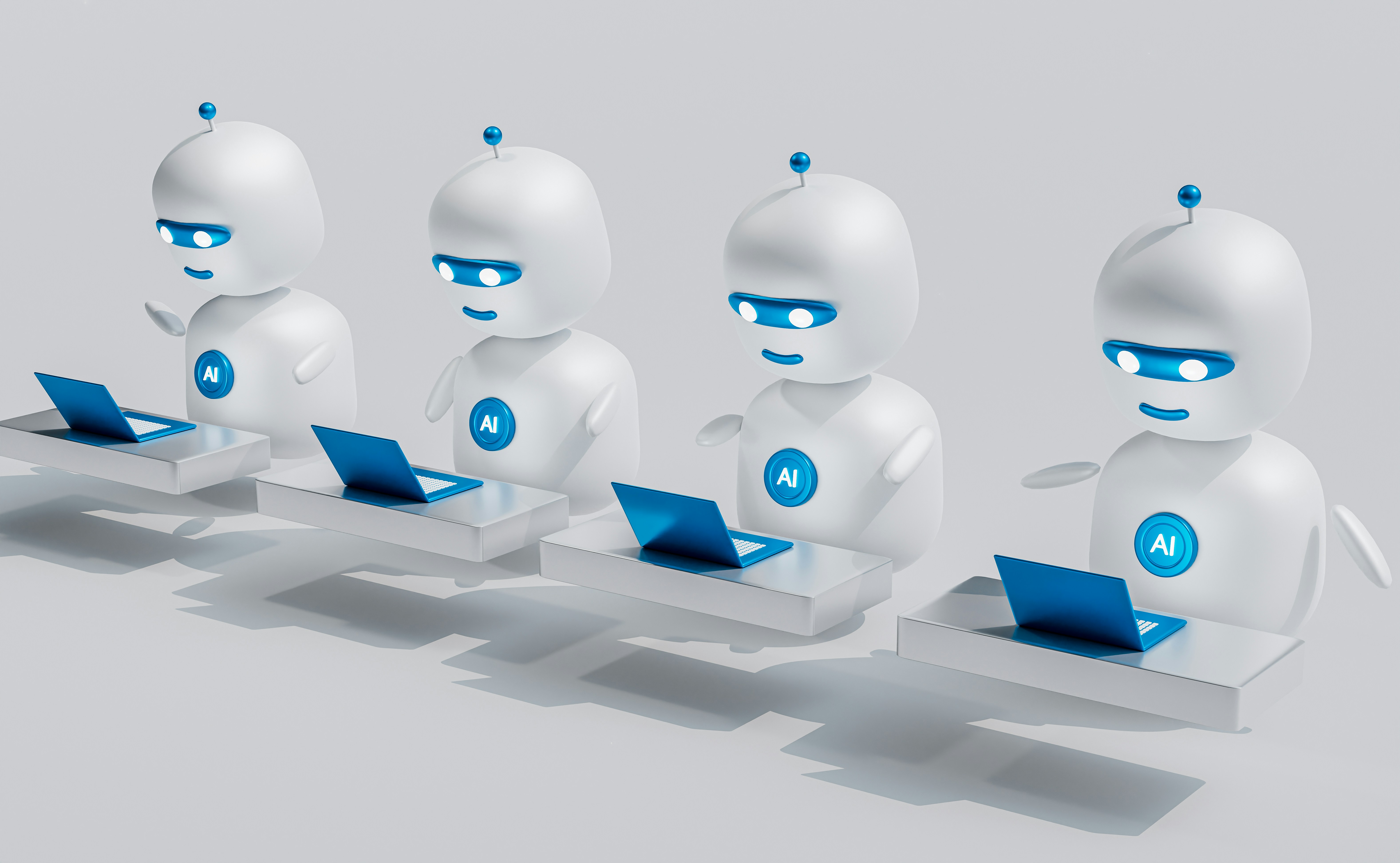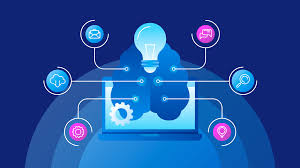Introduction to AI-Based Scheduling
AI-based scheduling refers to the integration of artificial intelligence technologies into the processes of planning and organizing tasks, appointments, or events. This innovative approach leverages machine learning algorithms and data analysis to automate scheduling tasks, thereby enhancing efficiency and effectiveness in both personal and professional settings. Through smart algorithms, AI-based systems analyze user preferences, availability, and priorities to generate optimal schedules that adapt to changing circumstances.
The significance of AI in scheduling cannot be overstated. Traditional scheduling methods often require considerable time and effort, involve manual input, and are prone to human errors. AI-based scheduling platforms streamline these processes, reducing the administrative burden and allowing individuals to focus on higher priority tasks. By utilizing advanced analytics, these systems can predict scheduling conflicts, recommend ideal times for meetings, and accommodate the dynamic needs of users.
In the corporate environment, AI-driven scheduling tools can optimize team collaboration by considering multiple participants’ availabilities and preferences. Consequently, meetings can be arranged more swiftly and with enhanced accuracy, fostering better communication and productivity within teams. Furthermore, personal AI scheduling assistants enable individuals to manage their private and professional lives efficiently, ensuring that they remain organized without unnecessary stress.
As technology continues to evolve, the integration of artificial intelligence in scheduling processes will likely expand, offering increasingly sophisticated solutions that further enhance productivity. Organizations and individuals adopting these tools can expect significant improvements in time management capabilities, ultimately leading to enhanced outcomes in various spheres of life. Embracing AI-based scheduling signals a step towards a future where time management is seamlessly streamlined through advanced technological innovations.
The Benefits of AI Scheduling Tools
AI scheduling tools present a multitude of advantages that significantly enhance time management capabilities in both personal and professional contexts. One of the most notable benefits is the increased efficiency they provide. Traditional scheduling often involves a considerable amount of manual input, which can be time-consuming and prone to errors. AI tools streamline this process by automating the scheduling of appointments, meetings, and events, allowing users to allocate their time more effectively.
Moreover, the incorporation of AI in scheduling leads to a substantial reduction in human error. When multiple individuals or resources need to be coordinated, conflicting schedules can arise, resulting in misunderstandings and wasted time. AI scheduling tools are designed to consider all variables—such as participant availability, meeting length, and time zone differences—thus minimizing the likelihood of conflicts. By leveraging data and algorithms, these tools can ensure that every aspect of a schedule is optimized, reducing instances of double-booking and last-minute cancellations.
Another significant advantage offered by AI scheduling tools is enhanced resource allocation. Businesses, in particular, benefit from the ability to assign tasks and manage personnel more effectively. When scheduling becomes smarter, it allows teams to be assigned based on availability and expertise, leading to improved project outcomes. Additionally, with the ability to analyze past schedules and predict future needs, organizations can allocate resources more strategically, enhancing overall productivity.
In healthcare, education, and many other sectors, AI scheduling tools can lead to better management of appointments, thereby increasing efficiency and client satisfaction. The ability to save time usually spent on manual scheduling allows individuals and organizations to focus their efforts on more meaningful tasks. Thus, the implementation of AI scheduling cannot only streamline processes but also transform the effectiveness of time management in considerable ways.
Key Features of AI Scheduling Software
AI scheduling software has transformed the way individuals and organizations manage their time by integrating a range of innovative features designed to enhance productivity and streamline workflows. One of the primary components of such software is automated appointment booking, which allows users to schedule meetings without the back-and-forth communication typically associated with traditional methods. This feature utilizes AI algorithms to analyze both parties’ calendars and propose optimal time slots, making the scheduling process significantly more efficient.
Another critical feature is real-time availability tracking. This tool provides an up-to-the-minute overview of a user’s schedule, ensuring that only available time slots are offered to potential attendees. Real-time updates not only prevent double bookings but also allow for immediate rescheduling, accommodating any changes that might arise in a user’s agenda. This aspect of AI scheduling software is particularly beneficial in fast-paced environments where time is of the essence.
Intelligent reminders play a vital role in enhancing the overall user experience as well. These reminders are not merely notifications; they are context-aware alerts that consider the user’s preferences and scheduling habits. By sending timely notifications, AI scheduling software helps users stay on top of upcoming appointments, thereby reducing the risk of missed meetings. Additionally, some software can adapt to user behavior, learning from past interactions to tailor reminders according to individual needs.
Furthermore, integrating these features creates a seamless experience that not only saves time but also minimizes stress associated with managing appointments. The intuitive nature of AI scheduling software empowers users to take control of their schedules, contributing to more efficient time management practices. Overall, the combination of automated booking, real-time tracking, and intelligent reminders serves to redefine how users perceive and utilize their time.
How AI Scheduling Works
The functionality of AI scheduling tools hinges on advanced technologies that empower them to make intelligent scheduling decisions. At the core of these tools are machine learning algorithms that learn from user behavior, preferences, and historical data. By analyzing vast amounts of data, these algorithms can identify patterns that help in predicting the most suitable scheduling options for individuals or teams. This process is fundamentally dependent on both supervised and unsupervised learning techniques, which refine the system’s understanding of what works best for users over time.
Data analysis plays an indispensable role in the effectiveness of AI scheduling. The algorithms continually collect data across various interactions, including meeting times, availability, preferred durations, and locations. By evaluating this information, the AI can provide recommendations that are tailored to individual needs. Additionally, the incorporation of contextual data—such as holidays, travel times, and dependencies on other events—further enhances the quality of its scheduling suggestions. This continuous feedback loop not only improves the accuracy of the scheduling system but also increases user satisfaction as the AI adapts to changing preferences over time.
Another vital component in the success of AI scheduling tools is natural language processing (NLP). NLP enables the AI to understand user input in a conversational manner, which is essential for effective interaction. Users can communicate their scheduling desires using everyday language, allowing the system to interpret their requests accurately. This capability not only simplifies the user experience but also promotes efficiency as the AI can quickly parse and execute complex requests without the need for technical jargon. Consequently, the merging of machine learning, data analysis, and natural language processing forms a robust framework that revolutionizes time management through automated and intelligent scheduling solutions.
Real-World Applications of AI-Based Scheduling
AI-based scheduling has begun to transform various industries by enabling organizations to optimize their operations, improve efficiency, and enhance overall productivity. One notable case is in healthcare, where facilities have adopted AI-driven scheduling tools to manage patient appointments more effectively. For example, a hospital in California implemented an AI scheduling system that analyzed patient data, appointment history, and doctor availability. This system reduced patient wait times by 30% and improved the overall patient experience, showcasing how AI can streamline administrative tasks.
In the corporate sector, companies are harnessing AI-based scheduling software to coordinate team meetings and manage employee workloads. A tech firm in New York successfully integrated an AI scheduling assistant that scans employees’ calendars and automatically recommends optimal times for meetings, taking into account time zones and availability. This solution resulted in a 25% reduction in time spent on scheduling conflicts, thus allowing employees to focus more on their primary tasks and responsibilities.
Educational institutions also recognize the benefits of AI scheduling tools. A university in Texas adopted an AI-driven scheduling system to enhance course and exam scheduling, accommodating both faculty and student needs. The software analyzed course demand, room availability, and instructor preferences, resulting in a more streamlined and equitable scheduling process. This initiative not only enhanced time management but also increased student satisfaction with their course experience.
Furthermore, the hospitality industry is leveraging AI scheduling to optimize staffing and bookings. A hotel chain implemented an AI system that predicts peak guest arrival times based on historical data, allowing for better staff allocation during busy periods. This not only improved service delivery but also reduced operational costs, highlighting the potential of AI-based scheduling in enhancing time management across various sectors.
Challenges and Limitations of AI Scheduling
The emergence of AI-based scheduling tools has transformed the way individuals and organizations manage their time. However, this innovation is not without its challenges and limitations. One primary concern is the growing dependence on technology for time management. Relying on AI systems can lead to a lack of personal accountability and critical thinking in scheduling decisions, as users may become overly reliant on automated recommendations. This dependence could diminish individuals’ ability to manage their time effectively without technological assistance.
Another significant challenge lies in privacy considerations. AI scheduling tools collect and analyze vast amounts of personal data to optimize scheduling processes. This data collection raises concerns regarding the security and confidentiality of individuals’ information. Users may unknowingly expose themselves to risks if adequate safeguards are not in place, which can undermine trust in these technologies. Organizations employing AI scheduling must therefore be vigilant in implementing robust data protection measures to ensure user privacy and compliance with regulations such as GDPR.
Moreover, the need for continuous maintenance and updates poses another limitation. As technology evolves, AI scheduling systems require ongoing support, software updates, and data management to remain effective. This necessity can be resource-intensive, placing a burden on organizations that may lack the expertise or budget for ongoing maintenance. To mitigate these challenges, users and organizations should invest in training programs that enhance their understanding of AI tools and foster efficient usage. Additionally, establishing clear protocols for data security and privacy safeguards can help alleviate concerns while fostering trust in AI scheduling solutions.
Addressing these challenges will not only enhance the effectiveness of AI-based scheduling but also promote a healthier relationship between technology and time management practices.
Future Trends in AI Scheduling
The landscape of AI-based scheduling is rapidly evolving, and several emerging trends indicate a transformative future. One of the most significant developments is the move towards increased personalization. AI algorithms are becoming more sophisticated, enabling them to adapt to individual user preferences and behaviors. This capability can tailor scheduling solutions that resonate with personal goals, time management styles, and productivity patterns. As machine learning models become more refined, the potential for highly personalized scheduling experiences increases, allowing users to maximize their efficiency with ease.
Integration with other digital tools is another trend set to shape the future of AI scheduling. As productivity ecosystems become more interconnected, AI scheduling applications will likely integrate seamlessly with various platforms including calendars, email clients, task management systems, and communication tools. This holistic approach ensures that scheduling is not done in isolation but rather as a part of a broader workflow. Such integration might empower users to have a single dashboard displaying their commitments, deadlines, and essential communications, leading to a more streamlined organizational process.
Additionally, the rise of remote and hybrid work environments has created an increased demand for flexible scheduling solutions. AI-based tools can analyze patterns in collaborative work, allowing for optimal alignment of schedules among teams spread across different time zones. The ability to automatically suggest meeting times based on participants’ availability is becoming a crucial feature in AI scheduling tools, making it easier to coordinate and enhance team productivity.
Artificial intelligence will also likely usher in a new era of data-driven decision-making in scheduling. By leveraging analytics and predictive modeling, AI can forecast future scheduling conflicts and propose proactive adjustments, thus minimizing disruptions. As we venture further into this changing landscape, it is clear that AI scheduling will not only simplify our day-to-day tasks but also redefine how we perceive and engage with time management in our personal and professional lives.
Choosing the Right AI Scheduling Tool
As businesses and individuals increasingly rely on technology to enhance productivity, selecting the appropriate AI scheduling tool becomes paramount. With numerous options available in the market, a systematic approach will facilitate informed decision-making tailored to specific needs. The first criterion to consider is the tool’s features. Essential functionalities might include automated meeting scheduling, calendar integration, and task management capabilities. Evaluating these features allows users to determine which tool aligns best with their workflow and objectives.
Ease of use is another critical consideration. A user-friendly interface can significantly reduce the learning curve and ensure smooth adoption among team members or users. Tools that offer mobile applications or browser extensions can provide flexibility, allowing individuals to manage their schedules on the go. It is beneficial to seek out AI scheduling solutions that include customer support resources, such as tutorials or a help desk, to assist users in maximizing the tool’s potential.
Compatibility with existing systems is also essential. Many organizations utilize platforms such as Google Calendar, Microsoft Outlook, or project management software. An AI scheduling tool that seamlessly integrates with these systems can significantly enhance productivity by avoiding data silos and ensuring all users have access to the same information. Testing out compatibility through free trials can provide valuable insights into how well a scheduler will fit within a current ecosystem.
Finally, cost considerations are unavoidable. While some AI scheduling tools offer free tiers or trials, evaluating the overall value relative to the budget is crucial. Pay attention to subscription models and whether costs correspond to the features provided. By balancing these factors—features, ease of use, compatibility, and cost—individuals and organizations can effectively choose the right AI scheduling tool that not only meets their immediate needs but also supports future scalability.
Conclusion: Embracing AI Scheduling for Enhanced Productivity
In today’s fast-paced world, effective time management has become imperative to achieving personal and professional success. The rise of AI-based scheduling tools signifies a revolutionary shift in this domain, offering innovative solutions that tailor scheduling processes to individual needs. These tools leverage advanced algorithms and machine learning to optimize calendars, ensuring that crucial tasks are prioritized while balancing workload and personal time.
The utilization of AI in scheduling not only streamlines task management but also minimizes the cognitive load associated with planning and organization. By automating repetitive scheduling tasks, individuals can focus more on their core responsibilities, enhancing their overall productivity. Moreover, AI scheduling platforms integrate seamlessly with existing digital tools, making it easier for users to adopt these systems into their daily routines. This adaptability is essential for maximizing time efficiency and empowering users to perform at their best.
As organizations and individuals increasingly recognize the value of enhancing productivity through technology, embracing AI scheduling becomes a strategic advantage. These systems not only help manage time effectively but also provide insights into work patterns and opportunities for improvement, allowing for continuous growth. By harnessing the power of artificial intelligence, users can unlock new efficiencies, enabling them to spend more time on high-impact activities rather than being bogged down by mundane scheduling concerns.
Ultimately, the transition to AI-based scheduling tools represents a significant milestone in how we approach time management. Embracing these advanced technologies equips individuals and organizations to navigate the complexities of modern life with greater ease and effectiveness. As we move forward, it is essential to integrate these solutions into our workflows, thereby unlocking our full potential and enhancing productivity in our daily lives.
How useful was this post?
Click on a star to rate it!
Average rating 0 / 5. Vote count: 0
No votes so far! Be the first to rate this post.

















